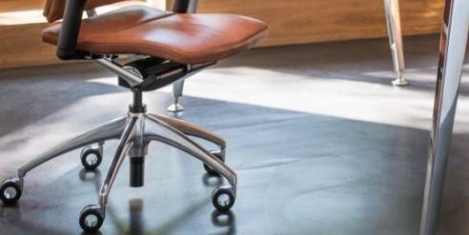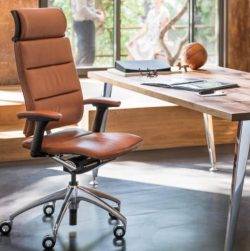To provide the best experiences, we use technologies like cookies to store and/or access device information. Consenting to these technologies will allow us to process data such as browsing behaviour or unique IDs on this site. Not consenting or withdrawing consent, may adversely affect certain features and functions.
The technical storage or access is strictly necessary for the legitimate purpose of enabling the use of a specific service explicitly requested by the subscriber or user, or for the sole purpose of carrying out the transmission of a communication over an electronic communications network.
The technical storage or access is necessary for the legitimate purpose of storing preferences that are not requested by the subscriber or user.
The technical storage or access that is used exclusively for statistical purposes.
The technical storage or access that is used exclusively for anonymous statistical purposes. Without a subpoena, voluntary compliance on the part of your Internet Service Provider, or additional records from a third party, information stored or retrieved for this purpose alone cannot usually be used to identify you.
The technical storage or access is required to create user profiles to send advertising, or to track the user on a website or across several websites for similar marketing purposes.
 Men who work long hours are less likely to become depressed than women who have similarly time consuming roles, a study from researchers at University College London and Queen Mary University has found. The study of more than 20,000 adults published in the Journal of Epidemiology and Community Health, found that women who worked 55 hours or more a week had 7.3 per cent more depressive symptoms than those on a standard 35-40 hour week. No significant link was found for men working the same hours.
Men who work long hours are less likely to become depressed than women who have similarly time consuming roles, a study from researchers at University College London and Queen Mary University has found. The study of more than 20,000 adults published in the Journal of Epidemiology and Community Health, found that women who worked 55 hours or more a week had 7.3 per cent more depressive symptoms than those on a standard 35-40 hour week. No significant link was found for men working the same hours.









 With the rise of both cloud-based technology and the worldwide gig economy, the last ten years of the 21st century have seen some near-revolutionary changes in workplace practice. Entrepreneurs everywhere have been more than happy to make use of these developments, taking advantage of the new business models these changes have brought. For example, IDG found that
With the rise of both cloud-based technology and the worldwide gig economy, the last ten years of the 21st century have seen some near-revolutionary changes in workplace practice. Entrepreneurs everywhere have been more than happy to make use of these developments, taking advantage of the new business models these changes have brought. For example, IDG found that 




 It’s been
It’s been 




 Despite the fact that a large number of employees continue to be relatively sedentary during their working day, there a growing demand for benefits that could help them achieve a healthier lifestyle, claims new research from Personal Group. More than 40 percent of employees surveyed want health insurance to be added to their workplace benefits programme; more than a third (34 percent) would like their employer to introduce discounted gym memberships, and more than one in four (28 percent) want to have access to rewards linked to physical activity. Almost a quarter (24 percent) want physical health-based incentives, such as interdepartmental step challenges or competitions added to their company-wide benefits programme. However, data shows that 70 percent of those surveyed who sit down to work only get up from their desk or workstation every hour at best, and 38 percent only move every two hours or more. Furthermore, a large proportion of employees eat at their desk or workstation on a regular basis (32 percent) and the majority choose to drive to work (60 percent) over walking (15 percent) or cycling (3.5 percent).
Despite the fact that a large number of employees continue to be relatively sedentary during their working day, there a growing demand for benefits that could help them achieve a healthier lifestyle, claims new research from Personal Group. More than 40 percent of employees surveyed want health insurance to be added to their workplace benefits programme; more than a third (34 percent) would like their employer to introduce discounted gym memberships, and more than one in four (28 percent) want to have access to rewards linked to physical activity. Almost a quarter (24 percent) want physical health-based incentives, such as interdepartmental step challenges or competitions added to their company-wide benefits programme. However, data shows that 70 percent of those surveyed who sit down to work only get up from their desk or workstation every hour at best, and 38 percent only move every two hours or more. Furthermore, a large proportion of employees eat at their desk or workstation on a regular basis (32 percent) and the majority choose to drive to work (60 percent) over walking (15 percent) or cycling (3.5 percent).









February 21, 2019
Why the gender pay gap is an enduring challenge for many organisations
by Heejung Chung • Comment, Workplace
More →